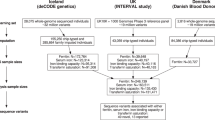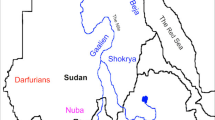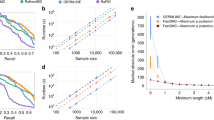Abstract
SINCE the discovery of genetically controlled slow and fast transferrin variants in human beings1,2, data on the frequencies of the different transferrin phenotypes have been collected from various populations. It was noted that slow variants seemed to occur mainly in Negroes and Australian Aborigines and fast variants in White people.
This is a preview of subscription content, access via your institution
Access options
Subscribe to this journal
Receive 51 print issues and online access
$199.00 per year
only $3.90 per issue
Buy this article
- Purchase on Springer Link
- Instant access to full article PDF
Prices may be subject to local taxes which are calculated during checkout
Similar content being viewed by others
References
Smithies, O., Nature, 180, 1482 (1957); 181, 1203 (1958).
Smithies, O., and Hiller, O., Biochem. J., 72, 121 (1958).
Beckman, L., and Holmgren, G., Acta Genet., 11, 106 (1961).
Author information
Authors and Affiliations
Rights and permissions
About this article
Cite this article
BECKMAN, L., HOLMGREN, G. & MÅRTENSSON, E. Transferrin Types in the Swedish Population. Nature 193, 185–186 (1962). https://doi.org/10.1038/193185a0
Issue Date:
DOI: https://doi.org/10.1038/193185a0
This article is cited by
-
Transferrin Variants in Finland
Nature (1963)
Comments
By submitting a comment you agree to abide by our Terms and Community Guidelines. If you find something abusive or that does not comply with our terms or guidelines please flag it as inappropriate.



